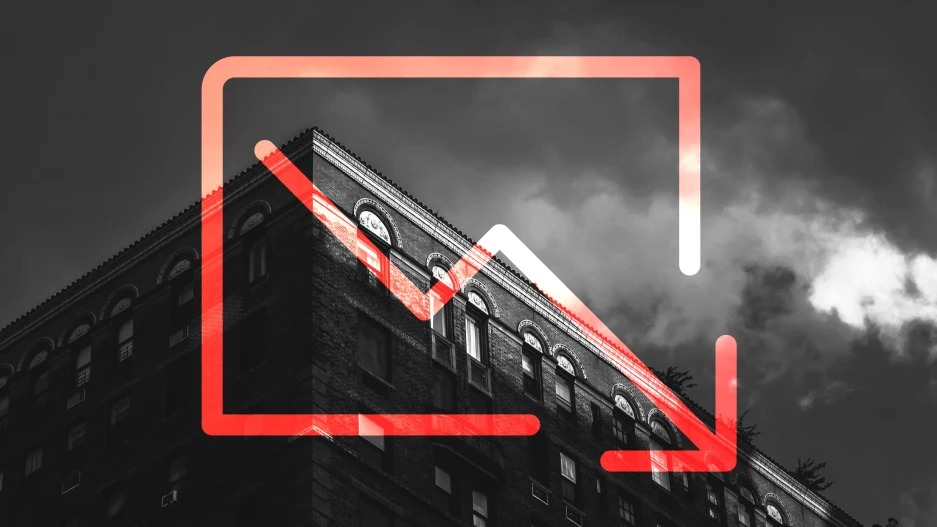- | 9:00 am
Is Airbnb crashing or not? It depends on what data you look at
Airbnb has spent a lot of time and effort over the past few years increasing the number of hosts on its platform, essentially boosting the supply of places to stay in the market.

The argument started, as so many do these days, on Twitter.
One real estate expert made waves last month when he pronounced Airbnb was collapsing, posting a data chart showing revenues falling nearly 50% in some cities. It wasn’t long before another expert disputed that claim, showing different figures that showed a slowdown in revenue, but nowhere close to the initial numbers.
Who to believe? Many media outlets ran with the “collapsing” story, since that Tweet went viral and nothing draws readers faster than panic. In truth, both Tweets were a little bit right and a little bit wrong—but it ultimately all comes down to that old business chestnut: Supply and demand.
Before we dive in too deep, it’s worth noting that Airbnb should provide some real clarity to this question in the coming weeks. The company is expected to report quarterly earnings by the end of the month. Right now, though, it’s in the Securities and Exchange Commission-mandated quiet period, which prohibits it from making forecasts or expressing any opinions about the value of their company, so it can’t say very much.
In a statement to Fast Company, though, a company spokesperson said of the “collapsing” talk: “The data is not consistent with our own data. As we said during our Q1 earnings, more guests are traveling on Airbnb than ever before, with Nights and Experiences Booked growing 19% in Q1 2023 compared to a year ago.”
(It’s also worth noting Airbnb stock has gained about 3% since the dueling Tweets went out, indicating investors aren’t putting a lot of stock in the “collapse” theory.)
All of that said, there are a number of factors at play here.
First, Airbnb has spent a lot of time and effort over the past few years increasing the number of hosts on its platform, essentially boosting the supply of places to stay in the market. A big part of the focus of that effort has been, naturally, in areas of high demand. Since the pandemic, that’s largely meant nonurban locations.
“After the vaccine, there was a rush of travel and people went to places like beaches, lakes, and mountains,” says Colin Sebastian, senior research analyst at RW Baird. “The people who were Airbnb hosts in those areas did extraordinarily well. But the market is adjusting, perhaps has adjusted, so the robust times for hosts are likely over.”
That said, he notes, in terms of overall bookings/demand, the numbers have been very strong. While growth might be slowing, it’s still quite healthy. So demand is good, but supply, in some instances, exceeds it. That doesn’t mean a collapse, but it does impact what hosts can charge.
For individual hosts, that’s an inconvenience. For so-called “professional hosts,” the people or corporations who bought 10 to 15 homes or condos in high-demand areas specifically to rent out, it could be more problematic.
That’s apparently the point Nick Gerli (the “Airbnb collapse is real” expert from above) was focused on. “Watch out for a wave of forced selling from Airbnb owners later this year in the areas hit hardest by the revenue collapse,” he wrote.
His data, though, from Alltherooms, was vastly different than the numbers from AirDNA—and AirDNA data has been called “more reliable” in comparisons and is favored by analysts. So, while Alltherooms shows a 47.2% drop in revenue per available listing in Phoenix, AZ, AirDNA puts the number at just a 3% decline. Myrtle Beach, SC? Alltherooms says it’s down 45%, but AirDNA has it 5.5% higher compared to a year ago.
So the boom times might be over for lake houses and mountain cabins, but those areas never go completely out of style. In the meantime, those big cities that people avoided in their post-pandemic revenge travel? They’re becoming appealing again.
“There’s a shift back towards cities,” says Sebastian. “People weren’t going to New York or Chicago for vacation. They’re returning now. Demand has shifted in terms of geography. . . . [And] overall, bookings are still very healthy, despite broader concerns we all have about the economy.”
Those recessionary fears might be skewing the numbers as well, Sebastian adds. People are waiting to see how things shake out in terms of their own finances and jobs before booking. So that results in a shorter lead time between booking and traveling.
“It’s somewhat inevitable that we’ll see a slowdown in travel,” he says. “But not to the level suggested by the data in those Tweets.”







































